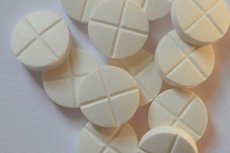New publications
B vitamins help fight depression
Last reviewed: 29.06.2025

All iLive content is medically reviewed or fact checked to ensure as much factual accuracy as possible.
We have strict sourcing guidelines and only link to reputable media sites, academic research institutions and, whenever possible, medically peer reviewed studies. Note that the numbers in parentheses ([1], [2], etc.) are clickable links to these studies.
If you feel that any of our content is inaccurate, out-of-date, or otherwise questionable, please select it and press Ctrl + Enter.

Additional intake of vitamin B6For four weeks leads to stabilization of excitation and inhibition processes in the central nervous system, reduces manifestations of anxiety and depressed mood in persons prone to the development of anxiety and depression. A new scientific work by employees of the British University of Reading on this topic was presented to the public this summer.
B-group vitamins are invaluable for virtually all catabolic and anabolic cellular reactions that occur within functional nervous processes, and this fact has long been known and proven. Thanks to these vitamins, an adequate balance between nerve excitations and inhibitions is maintained. And this is an important contribution, as any shifts in balance can lead to the appearance of many neuropsychiatric disorders, including anxiety and depression.
Scientists conducted a double-blind study, during which they examined the effect of supplemental intake of B-group vitamins on some behavioral characteristics caused by the processes of nervous inhibition and excitation. About five hundred participants of different ages (from 18 to 58 years) were conditionally divided into three groups. The first two groups took B6In the amount of 100 mg/day or B12In the amount of 1000 mcg/day for four weeks (the doses exceed the standard daily dose). The third group of participants took an "empty" preparation.
All the subjects were diagnosed before the experiment and at the end of the experiment to determine the presence and degree of anxiety and depression, as well as to assess brain activity. The results of the work demonstrated that the use of vitamin B12Preparations had a small anti-anxiety effect compared to "empty". But the use of B6Proved to be the most effective.
This vitamin is involved in the production of the neurotransmitter gamma-aminobutyric acid, which blocks signals between brain neurons and enhances inhibition. In addition, B6Helps synthesize other neurotransmitters, such as dopamine, serotonin, and norepinephrine, acting as a mediator of the kynurenine pathway and reducing the level of quinolinic acid, an agonist of the NMDA receptor.
The authors of the scientific work point out that such foodstuffs as sea fish, vegetables and fruits often contain the very vitamin B6. However, if you are prone to anxiety and depression, just eating the right foods may not be enough, so you need to take additional vitamin preparations. It is a question of high doses of B6, which is the only way to achieve the positive expected effect.
The full version of the material can be found on the source page of the source page
